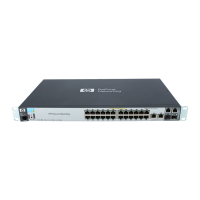HP NonStop TMF Management Programming Manual—540140-008
2-1
2
Communicating With the
TMFSERVE Process
A management application communicates with TMF through the Subsystem
Programmatic Interface (SPI). It retrieves event messages from TMF through the Event
Management Service (EMS).
This section contains the following topics:
Communicating With the TMFSERVE Process on page 2-1
Starting and Opening TMFSERVE on page 2-2
Closing TMFSERVE on page 2-3
Running an EMS Consumer Distributor on page 2-3
Communicating With the TMFSERVE Process
The TMFSERVE process supports management applications written in TAL,
COBOL85, TACL, or C.
When writing a management application using the TMFSERVE process, use the
following guidelines:
It is not a process pair
It can be opened by a primary process or its backup
It can be opened by a requester only once
It can be opened by up to 10 requesters at a time
It can be started by any user that has execute access to the TMFSERVE object file
It responds to one request before it begins work on another (it is single-threaded)
It can accept a sync depth of 0 or 1
It does not support multiple outstanding requests from the same requester
It can only manage TMF on the system where it is running
If you want to manage TMF on a remote system, you must establish communication
with a TMFSERVE process on that system.
If you want to make audit dumps or online dumps using a tape drive on another
system, that system must have labeled-tape processing configured by SYSGEN.
